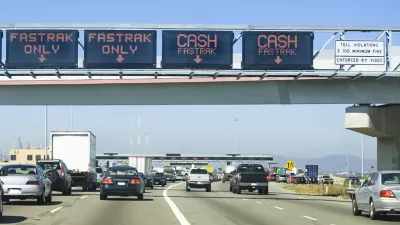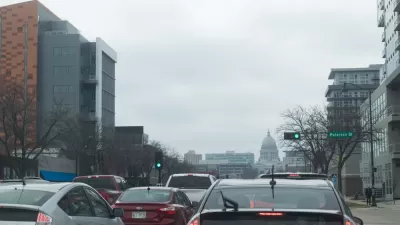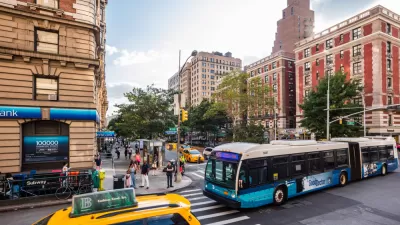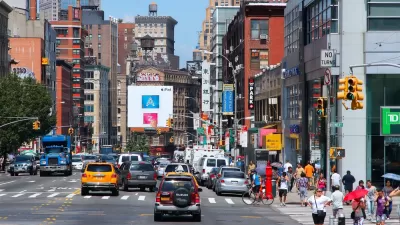The editorial board of the Toronto Star picks a side in the policy debate over highway tolling.

The Toronto Star published an editorial that takes a pair of political stances with regard to the implementation of highway tolls: yes, the tax is regressive, placing more burden on low-income commuters than more affluent drivers. But toll roads can still be a benefit to low-income residents.
To reach the conclusion about toll roads being a regressive tax—a familiar and frequently employed talking point in the argument against toll roads—the editorial relies on a federal briefing note prepared for deputy finance minister Paul Rochon in February and obtained by The Canadian Press through the access to information process. "The internal analysis found that, while higher income people are heavier users of road infrastructure, three-quarters of the less-well-off still rely on the road network and therefore could be hit by tolls," according to the editorials.
The editorial's argument in response to the acceptance of toll roads as a regressive tax, is that it can also generate funding and provide benefits for low-income citizens. "Indeed, highway pricing delivers a dual benefit. It’s a way of potentially raising hundreds of millions of dollars for transit each year, depending on the nature and location of tolling systems. And it eases gridlock by convincing more drivers to leave their vehicle at home and opt instead for alternatives such as car pooling, telecommuting or riding transit."
FULL STORY: Road tolls needn’t be bad for the poor: Editorial

Alabama: Trump Terminates Settlements for Black Communities Harmed By Raw Sewage
Trump deemed the landmark civil rights agreement “illegal DEI and environmental justice policy.”

Study: Maui’s Plan to Convert Vacation Rentals to Long-Term Housing Could Cause Nearly $1 Billion Economic Loss
The plan would reduce visitor accommodation by 25% resulting in 1,900 jobs lost.

Why Should We Subsidize Public Transportation?
Many public transit agencies face financial stress due to rising costs, declining fare revenue, and declining subsidies. Transit advocates must provide a strong business case for increasing public transit funding.

Wind Energy on the Rise Despite Federal Policy Reversal
The Trump administration is revoking federal support for renewable energy, but demand for new projects continues unabated.

Passengers Flock to Caltrain After Electrification
The new electric trains are running faster and more reliably, leading to strong ridership growth on the Bay Area rail system.

Texas Churches Rally Behind ‘Yes in God’s Back Yard’ Legislation
Religious leaders want the state to reduce zoning regulations to streamline leasing church-owned land to housing developers.
Urban Design for Planners 1: Software Tools
This six-course series explores essential urban design concepts using open source software and equips planners with the tools they need to participate fully in the urban design process.
Planning for Universal Design
Learn the tools for implementing Universal Design in planning regulations.
Caltrans
Smith Gee Studio
Institute for Housing and Urban Development Studies (IHS)
City of Grandview
Harvard GSD Executive Education
Toledo-Lucas County Plan Commissions
Salt Lake City
NYU Wagner Graduate School of Public Service





























